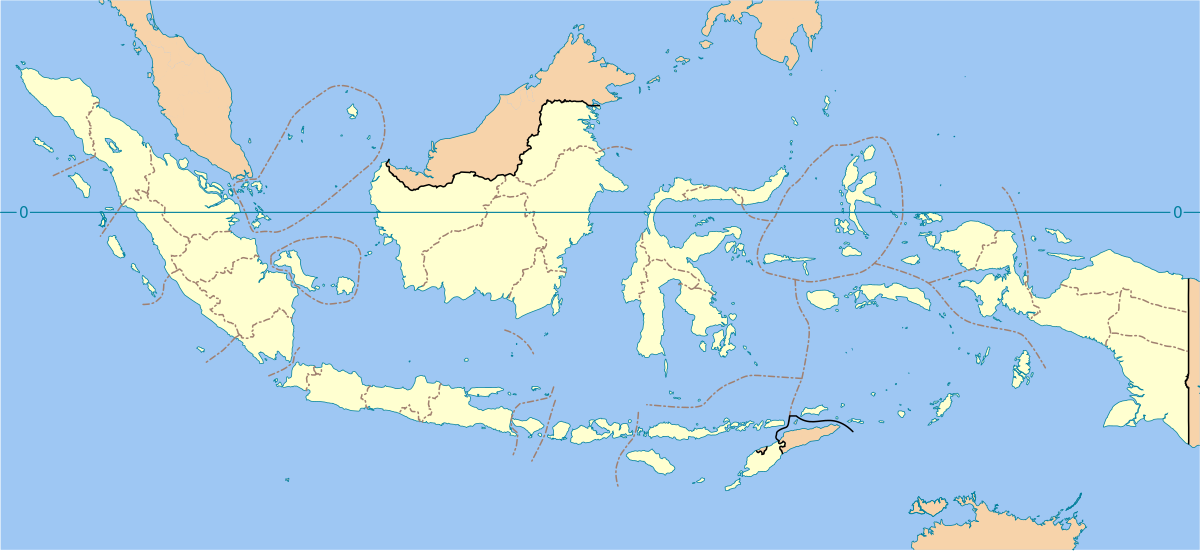Administratively, Indonesia consists of 34 provinces, five of which
have special status. Each province has its own legislature and governor.
The provinces are subdivided into regencies (
kabupaten) and cities (
kota), which are further subdivided into districts (
kecamatan), and again into
village groupings (either
desa or
kelurahan).
Furthermore, a village is divided into several citizen groups
(Rukun-Warga (RW)) which are further divided into neighbourhood groups
(Rukun-Tetangga (RT)). Following the implementation of regional autonomy
measures in 2001, the regencies and cities have become the key
administrative units, responsible for providing most government
services. The village administration level is the most influential on a
citizen's daily life and handles matters of a village or neighborhood
through an elected
lurah or
kepala desa (village chief).
The provinces of
Aceh,
Jakarta,
Yogyakarta,
Papua, and
West Papua
have greater legislative privileges and a higher degree of autonomy
from the central government than the other provinces. The Acehnese
government, for example, has the right to create certain elements of an
independent legal system; in 2003, it instituted a form of
Sharia (Islamic law).
[82]
Yogyakarta was granted the status of Special Region in recognition of
its pivotal role in supporting Indonesian Republicans during the
Indonesian Revolution.
[83] Papua, formerly known as Irian Jaya, was granted special autonomy status in 2001 and was separated into
Papua and
West Papua in February 2003.
[84][85] Jakarta is the country's special capital region.

Tidak ada komentar:
Posting Komentar